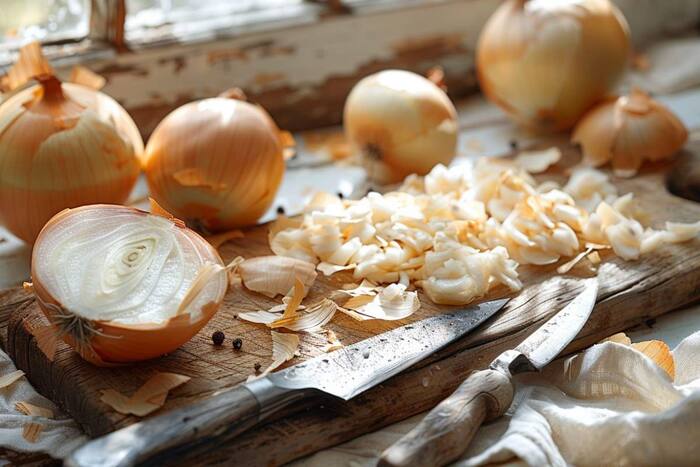
By clicking “Accept All Cookies”, you agree to the storing of cookies on your device to enhance site navigation, analyze site usage, and assist in our marketing efforts Cookies Policy.

Onion peels, often discarded, actually offer a range of benefits due to their rich content of antioxidants, vitamins, and other nutrients. Here are some notable advantages:
Onion peels are high in flavonoids and phenolic compounds, which can help combat oxidative stress and reduce inflammation. Quercetin, a powerful antioxidant found in onion skins, is known for its potential to support cardiovascular health and reduce the risk of chronic diseases.
They contain vitamins A and C, as well as minerals like calcium, potassium, and magnesium. These nutrients support overall health and can contribute to better skin, bone health, and more.
The compounds in onion peels can help reduce inflammation, which might be beneficial for conditions like arthritis or asthma.
Onion peels are a good source of dietary fiber, which aids in digestion and helps maintain a healthy gut microbiome.
Onion peels can be used as a natural dye for fabrics and Easter eggs, providing a chemical-free alternative to synthetic dyes.
The antioxidants and vitamins in onion peels can help boost the immune system, helping the body fend off infections.
Onion peels can be used in homemade face masks or scrubs. Their antioxidant properties may help with skin rejuvenation and improving complexion.
Using onion peels in compost or as mulch can improve soil health and reduce waste, making them an eco-friendly option.
To make the most of onion peels, you can add them to broths, use them in teas, or include them in compost. Just be sure to thoroughly wash them if they’re not organic to avoid pesticide residues.
For breaking news and live news updates, like us on Facebook or follow us on Twitter and Instagram. Read more on Latest Dishes News on India.com.